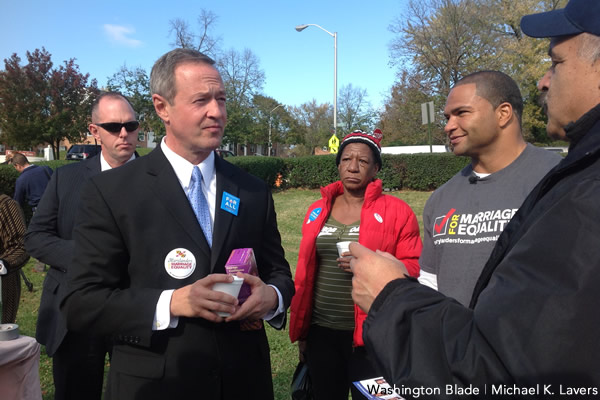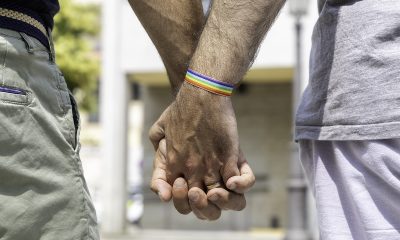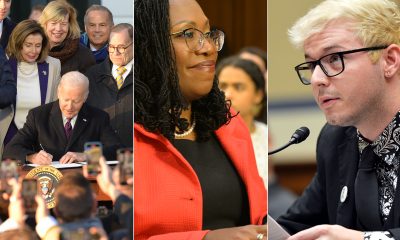Local
Ayanbadejo ‘excited’ to speak at Supreme Court
Ravens linebacker became a public face of Maryland marriage campaign
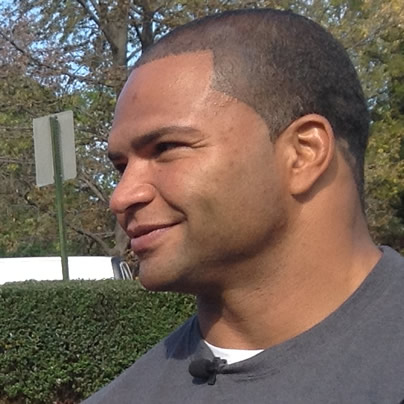

Ravens linebacker Brendon Ayanbadejo is an ally and vocal LGBT advocate. (Photo by Thibous via Wikimedia Commons)
Baltimore Ravens linebacker Brendon Ayanbadejo on Monday said he is “excited” to speak in support of marriage rights for same-sex couples outside the U.S. Supreme Court on Tuesday.
“I’ve gone out to the polls and passed out fliers and done stuff like that, but I’ve never spoken in front of a courthouse or in any type of rally ever before,” he told the Washington Blade during an extended interview. “This is sort of uncharted territory for me. I’m kind of the most unlikely of people to do so where everyone else will be some sort of activist or is some way involved in politics. I’m just a concerned citizen.”
Ayanbadejo, who will speak alongside D.C. Congressional Del. Eleanor Holmes Norton and others outside the Supreme Court before the justices hear oral arguments in a case that challenges California’s Proposition 8, in 2009 became the first professional athlete to endorse marriage rights for same-sex couples. He also became one of the most public faces of last year’s campaign in support of the referendum on Maryland’s same-sex marriage law.
State Del. Emmett Burns (D-Baltimore County) told team owner Steve Bisciotti that Ayanbadejo “should concentrate on football and steer clear of dividing the fan base” last August after he donated two Ravens tickets as part of a Marylanders for Marriage Equality fundraiser.
The Ravens and Chris Kluwe of the Minnesota Vikings are among those who defended Ayanbadejo. A Maryland legislative committee last month concluded Burns violated the General Assembly’s ethics rules when he wrote to Bisciotti on official stationary.
“I’m pretty proud to pay taxes and be in Maryland and be in a state that’s paving the way that’s really trailblazing and changing people’s minds and opinions and attitudes toward LGBT equality,” Ayanbadejo said.
Ayanbadejo, whose father is Nigerian and mother is of Irish descent, added he feels highlighting the fact his parents and other interracial couples could not legally marry in some states before the Supreme Court in 1967 struck down such bans in its landmark Loving v. Virginia decision is an effective argument within the current debate.
“In Loving v. Virginia we were fighting for interracial marriage and now we’re fighting for LGBT marriage or same-sex marriage,” he said. “The overlying issue is government trying to dictate who we should love and the Constitution clearly that states everyone is created equal and has equal protections under the law, but clearly they don’t.”
Ayanbadejo conceded he has received some criticism over this comparison, but not from communities of color.
“This is a civil rights issue; this is a human rights issue,” he said. “There’s been much opposition to that, but I still firmly believe in my stance that it is an equal rights issue. People are entitled to their opinions, but it’s the fact of the matter that people are not treated equally and that’s something you can’t argue about. Equality is not somebody’s opinion. It’s your right as an American citizen.”
Ayanbadejo fights anti-LGBT stigma in sports
Ayanbadejo, who filed a brief in support of marriage rights for same-sex couples with the Supreme Court in the Prop 8 case with Kluwe, is working with Athlete Ally to fight homophobia and transphobia in sports.
He told the Blade most of his Ravens teammates either “flat out agree with me” on nuptials for gays and lesbians or claim the word marriage cannot be used to describe same-sex unions because of what the Bible says.
Ayanbadejo said these attitudes have begun to shift.
“We’re definitely changing the tide, even in the locker room,” he said. “We’re just a little bit behind.”
Ayanbadejo is friends with gay former professional football player Wade Davis. He said he is also trying to reach out to former San Francisco 49ers and Oakland Raiders offensive tackle Kwame Harris whose sexual orientation became known after he allegedly attacked his ex-boyfriend last August.
“If you’re in the locker room and can be yourself not only will you play better, but you’ll also be a better person and better in the community,” Ayanbadejo said as he discussed his work with Athlete Ally. “You’ll be able to flourish more so.”
He further described gay Olympian Greg Louganis, whom he watched on television when he was a child, as an additional role model.
“I’ll never forget Greg Louganis diving and getting excited and winning his gold medal and later coming out on ‘Oprah,’” Ayanbadejo said, noting the two men have become friends. “I didn’t know him when I was younger, but I knew his fight and everything that he had gone through. And now to be friends with him as an adult, he was definitely was a role model for me as a younger child.”
Ayanbadejo has tickets to go inside the Supreme Court, but his nearly 2-year-old son is having heart surgery in a couple of weeks so he is going to return home almost immediately after tomorrow’s rally.
He told the Blade he plans to remain involved in the LGBT rights movement once the justices issue their rulings in the two cases.
“Even though it’s advocacy work I just consider myself a concerned citizen and i’m going to uphold the Constitution and make sure America’s accountable to treat everybody equal,” Ayanbadejo said. “Eventually my work will subside in this area and everybody will vote toward acceptance and the laws change. It’s not like it’s going to happen overnight.”
He added he remains particularly proud of his work around marriage rights for same-sex couples in Maryland.
“My legacy will always be there,” Ayanbadejo said, reflecting once again on his broader advocacy on behalf of LGBT people. “It is something that I will always carry with me and I’ll always cherish the work I’ve done for the LGBT community. Right now we’re at a tipping point where we’re gaining the momentum, but we still have a long way to go.”
West Virginia
Appeals court strikes down W.Va. transgender athlete ban
Ruling finds law violates students’ constitutional rights, Title IX
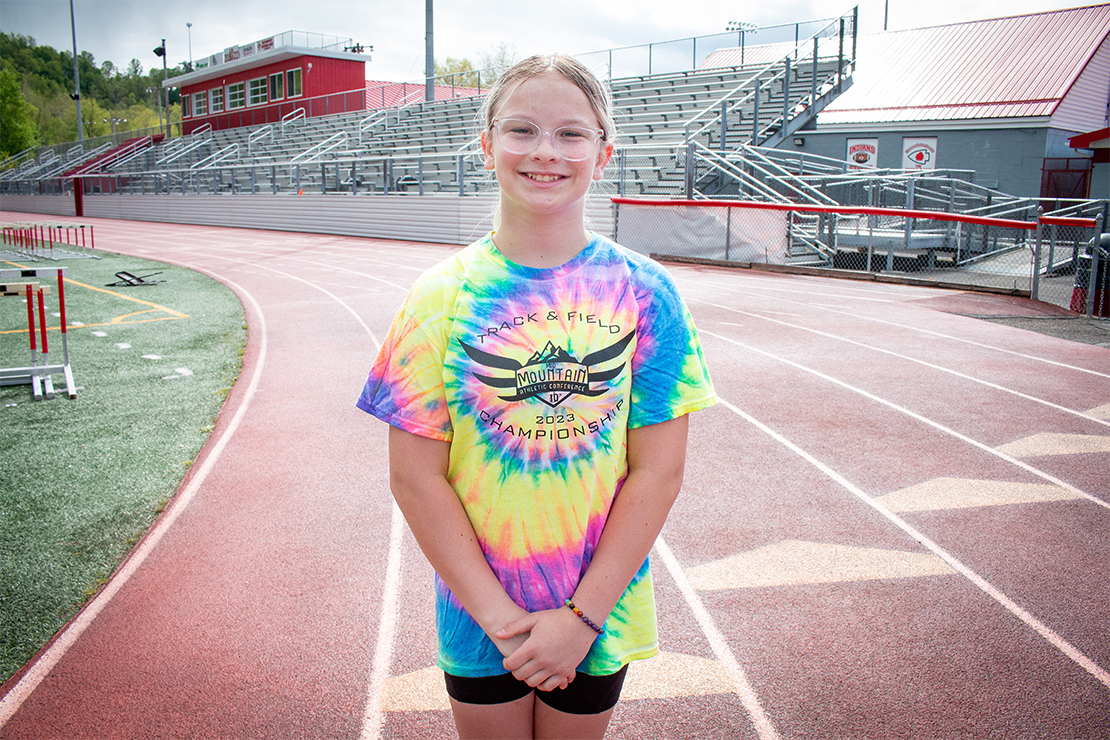
BY LORI KERSEY | The 4th U.S. Circuit Court of Appeals has struck down West Virginia’s ban on transgender athletes, finding the law violates trans students’ rights under the Equal Protection Clause of the constitution and Title IX, a federal civil rights law prohibiting discrimination based on sex in education programs.
The case, B.P.J. vs. the West Virginia Board of Education, was filed in May 2021 on behalf of Becky Pepper-Jackson, a 13-year-old trans middle school student and track athlete who would be barred from participating if the ban is upheld. Pepper-Jackson is represented by the American Civil Liberties Union, the American Civil Liberties Union of West Virginia and Lambda Legal.
In April 2021, West Virginia Gov. Jim Justice signed into law a bill prohibiting trans women and girls in the state from participating in sports that align with their gender identity. The U.S. Court of Appeals in February 2023 blocked the state from removing Pepper-Jackson from her school’s track and field team as legal advocates appealed a lower court’s ruling upholding the ban.
In Tuesday’s ruling, Judge Toby Heytens wrote that offering Pepper-Jackson the “choice” between not participating in sports and participating only on boys teams is not a real choice.
“The defendants cannot expect that B.P.J. will countermand her social transition, her medical treatment, and all the work she has done with her schools, teachers and coaches for nearly half her life by introducing herself to teammates, coaches and even opponents as a boy,” the judge wrote.
“By participating on boys teams, B.P.J. would be sharing the field with boys who are larger, stronger, and faster than her because of the elevated levels of circulating testosterone she lacks,” he wrote. “The Act thus exposes B.P.J. to the very harms Title IX is meant to prevent by effectively ‘exclud[ing]’ her from ‘participation in’ all non-coed sports entirely.”
In a statement Tuesday, Joshua Block, senior staff attorney for the ACLU’s LGBTQ and HIV Project, called the court’s ruling “a tremendous victory for our client, transgender West Virginians and the freedom of all youth to play as who they are.”
“It also continues a string of federal courts ruling against bans on the participation of transgender athletes and in favor of their equal participation as the gender they know themselves to be,” Block wrote. “This case is fundamentally about the equality of transgender youth in our schools and our communities and we’re thankful the 4th Circuit agreed.”
“We hope today’s ruling sends a message of hope to the trans youth of West Virginia,” Aubrey Sparks, legal director of the ACLU of West Virginia, said in the statement. “And a message of warning to politicians who continue to dehumanize this vulnerable population.”
West Virginia is one of 21 states that have banned trans student-athletes over the last three years, according to the ACLU.
In a statement Tuesday, West Virginia Attorney General Patrick Morrisey vowed to defend the ban and said he is “deeply disappointed” in the decision.
“The Save Women’s Sports Act is ‘constitutionally permissible’ and the law complies with Title IX,” Morrisey said. “I will keep fighting to safeguard Title IX. We must keep working to protect women’s sports so that women’s safety is secured and girls have a truly fair playing field. We know the law is correct and will use every available tool to defend it.”
******************************************************************************************

Lori Kersey is a reporter with a decade of experience reporting in West Virginia. She covers state government for West Virginia Watch.
******************************************************************************************
The preceding article was previously published by the West Virginia Watch and is republished with permission.
Nonprofit, nonpartisan, independent journalism not hidden behind a paywall. Mountaineers are always free, and so is West Virginia Watch.
West Virginia Watch is part of States Newsroom, the nation’s largest state-focused nonprofit news organization.
District of Columbia
Reenactment of first gay rights picket at White House set for April 17
Event marks 59th anniversary of historic push for gay rights in nation’s capital
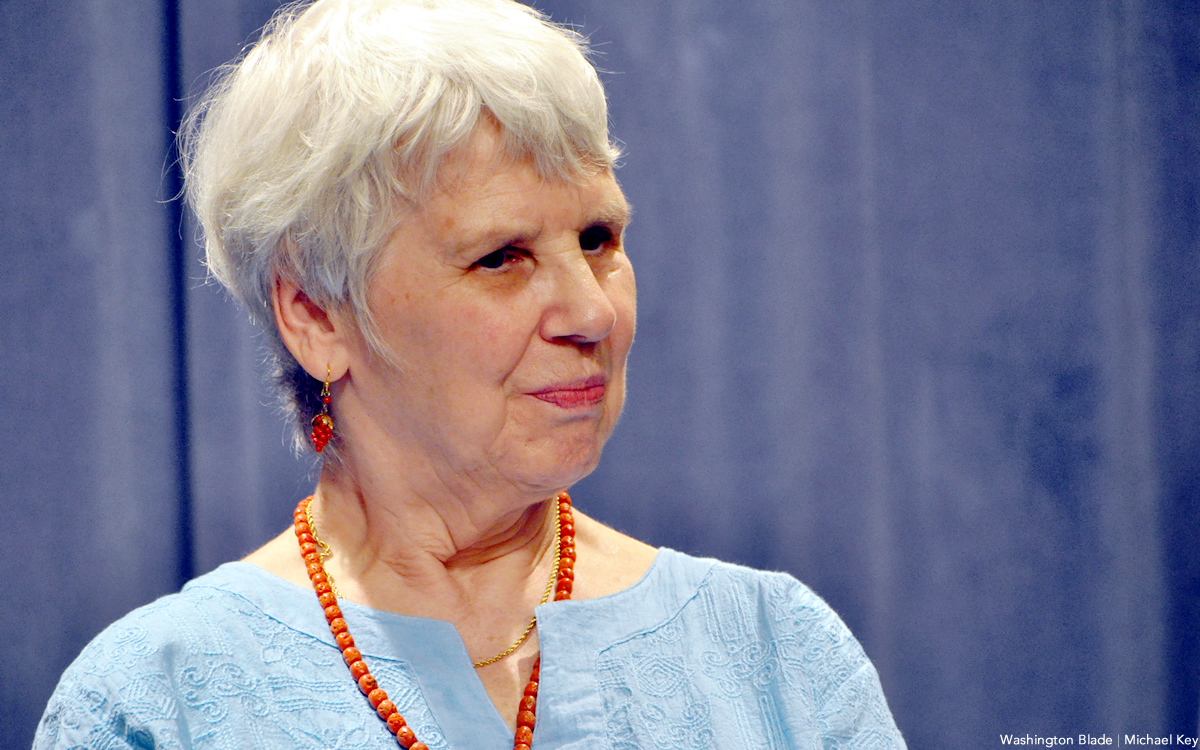
D.C.’s Rainbow History Project announced it will hold a reenactment on Wednesday, April 17, of the historic first protest for gay rights in the form of a picket line in front of the White House that took place on that same day in 1965.
In a statement released last week, Rainbow History Project says the reenactment will mark the 59th anniversary of an event that is credited with bringing attention for the first time to the federal government’s longstanding discrimination against a minority group referred to then as homosexuals or gays and lesbians.
The statement notes that the 1965 event was organized by the Mattachine Society of Washington, D.C., the first politically active LGBT organization in the nation’s capital founded by local gay rights pioneer Frank Kameny.
“The picket took place on the White House sidewalk, Lafayette Park, 1600 Pennsylvania Ave., on April 17, 1965,” the statement says. “For exactly one hour, from 4:20 p.m. to 5:20 p.m., members of the Mattachine Society of Washington walked in a circle, non-stop, in silence, carrying posters of their demands,” the statement continues.
“The White House picket is the origin story for public demonstrations for gay rights in the U.S., and the origin story for Pride Marches and the annual LGBTQ Pride celebrations which occur across the globe,” according to the statement.
It says those picketing in the April 1965 event, which included Kameny and longtime local D.C.-area lesbian activist Lilli Vincenz, both of whom held doctorate degrees, called on the government to adopt the Mattachine Society of Washington’s four major demands: an end to the exclusion of homosexuals from federal government employment; an end to the ban on gays and lesbians from serving in the U.S. military; an end to the “blanket denial” of security clearances for gay people; and an end to the “government refusal to meet with the LGBTQ community.’
Among those who chose not to respond to the request for a meeting was President Lyndon B. Johnson, who occupied the White House at the time of the 1965 picketing.
Vincent Slatt, the Rainbow History Project’s director of archiving and one of the lead organizers of the April 17 reenactment event, said the event is aimed, among other things, at drawing attention to how far the LGBTQ community has come since 1965. He said the event is not in any way a protest of the administration of President Joe Biden and Vice President Kamala Harris, who Slatt called staunch supporters of the LGBTQ community.
“We are just reenacting this historical event and pointing out how far we’ve come,” Slatt told the Washington Blade. “If you think about what it means in 1965 when these people were protesting and LBJ would not even respond to them. And now, we are at a place where Vice President Harris speaks on a stage at Capital Pride.”
The Rainbow History Project statement notes that the reenactment event will also be held in honor of Kameny, who died in 2011, and Vincenz, who passed away in 2023, both of whom participated in a similar reenactment event in 2008.
Among those who will be participating in this week’s reenactment on April 17 will be longtime local LGBTQ rights activist Paul Kuntzler, who is the only known surviving person who was among the White House picketers at the April 1965 event. Kuntzler will be carrying a replica of his own picket sign he held at the 1965 event, the statement says.
It says Rainbow History Project volunteers will also carry replicas of the original protest signs and hand out literature explaining the picket to passersby and tourists.
Similar to the 1965 event, the reenactment picketing at the White House will begin on April 17 at about 4:15 p.m., according to Slatt of the Rainbow History Project.
District of Columbia
Four LGBTQ candidates running for delegate to Democratic National Convention from D.C.
Thirty-two candidates competing for 13 elected delegate positions in April 20 party caucus
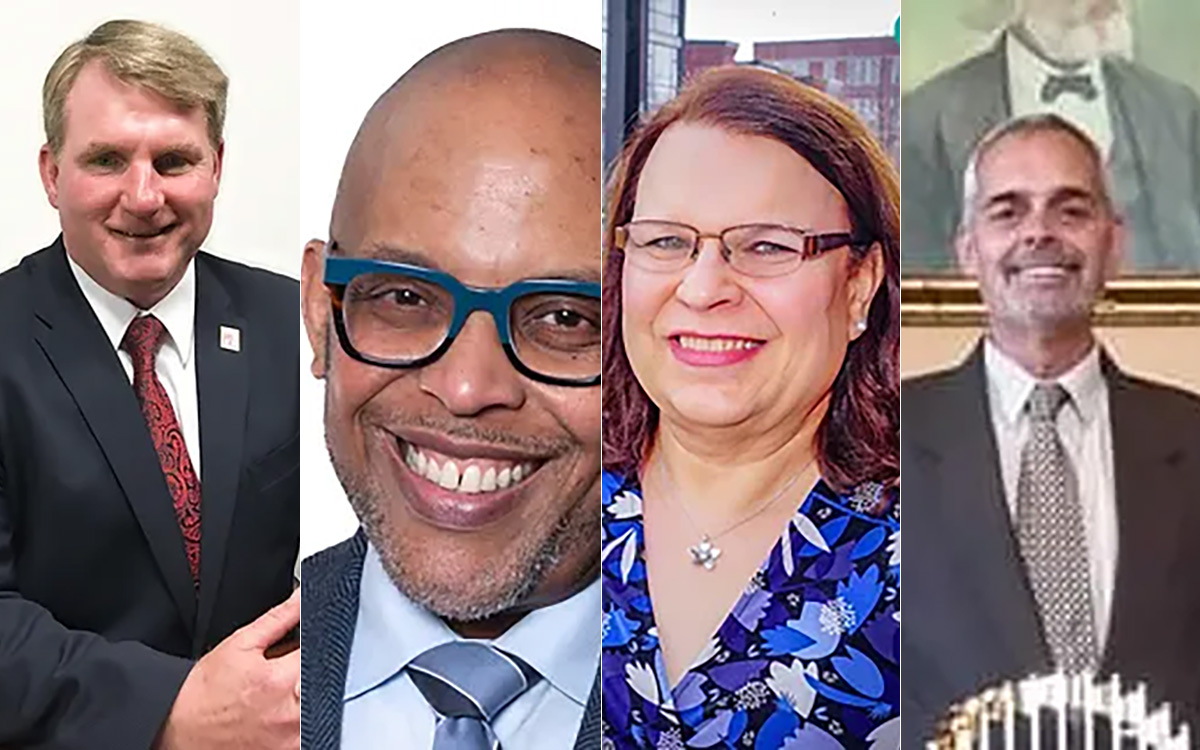
Four LGBTQ Democratic Party activists are running for election as delegates from D.C. to the Democratic National Convention at an April 20 local Democratic Party caucus election in which all D.C. voters who are registered as Democrats will be eligible to vote.
The four LGBTQ candidates are among 32 candidates competing for just 13 elected delegate positions. D.C. will have a total of 51 delegates to the Democratic Convention, but the other 38 include elected officials and party leaders who are considered “automatic” or appointed delegates. The convention will be held in Chicago Aug. 19-23,
Under the delegate selection process put in place by the D.C. Democratic Party, six of the thirteen elected delegate positions will be elected by voters in a section of the city designated as District 1, which includes Wards 1,2, 6, and 8. The other seven elected delegates will be chosen by voters in District 2, which includes Wards 3, 4, 5, and 7.
The LGBTQ candidates include longtime gay Democratic activists David Meadows of Ward 6 and John Fanning of Ward 2 who are running in District 1. Transgender rights advocate and Democratic Party activist Monika Nemeth of Ward 3 and gay Democratic activist Jimmie Williams of Ward 7 are running in District 2.
All four of the LGBTQ candidates have been active members of the Capital Stonewall Democrats, one of D.C.’s largest LGBTQ political organizations. Nemeth and Meadows are past presidents of the organization. Williams has served as chair of the Ward 7 Democratic Committee and is a current member of the committee. Fanning has served as an elected member of the D.C. Democratic State Committee from Ward 2 and served as a delegate to the 2016 Democratic National Convention.
A total of 12 candidates are running in each of the two districts. Under party rules the highest six vote getters in District 1 and the highest 7 vote getters in District 2 will be declared the winners.
The Saturday, April 20 caucus election for the delegate candidates will take place at the Walter E. Washington D.C. Convention Center. An announcement by party officials says two voting sessions will take place, one from 10:00 a.m. to 2:00 p.m. and the other from 4:00 p.m. to 8:00 p.m.
Aside from the elected delegates, two prominent D.C. LGBTQ Democratic leaders will be appointed as delegates to the 2024 Democratic National Convention in their role as members of the Democratic National Committee from D.C.
They are Claire Lucas, a highly acclaimed Democratic Party and LGBTQ rights advocate and party fundraiser; and Earl Fowlkes, one of the lead organizers of D.C.’s annual Black LGBTQ Pride celebration and former president of Capital Stonewall Democrats.
Lucas and Fowlkes and the four LGBTQ candidates running in the April 20 caucus election are committed to backing President Joe Biden as the Democratic nominee for re-election.
Statements from each of the candidates running for delegate in the April 20 caucus election, including the four LGBTQ candidates, can be accessed here: Candidates for Delegate | DC Democratic Party
-

 Africa2 days ago
Africa2 days agoCongolese lawmaker introduces anti-homosexuality bill
-

 Colorado4 days ago
Colorado4 days agoFive transgender, nonbinary ICE detainees allege mistreatment at Colo. detention center
-

 Politics4 days ago
Politics4 days agoFirst lady warns Trump is ‘dangerous to the LGBTQ community’ at HRC event
-
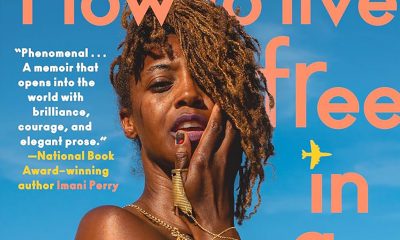
 Books4 days ago
Books4 days agoNew book offers observations on race, beauty, love

